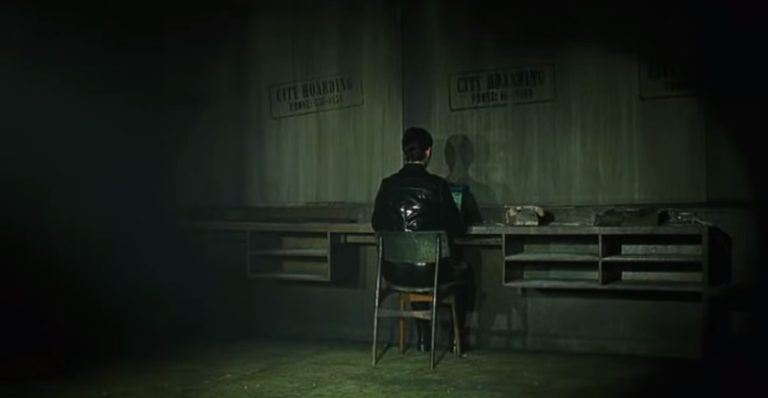How to Sell Your Screenplay in the Opening Pages

How do you capture the attention and enthusiasm of the producer, development executive, manager, agent, or script reader from page one? That's usually what it takes to get your script the recognition it needs to move up the ladder. Amazing opening scenes or sequences sell the tone, atmosphere, genre, and concept of the screenplay. If you've done your job in that respect, readers immediately know what type of ride they are in for.
No great opening sequence can save an otherwise bad script mind you, but it's the opening that flips a switch within the reader's mind — a switch that either says "Wow, this is cool, interesting, or compelling" or "Yeah, I'm bored."
Yes, there are great scripts that offer slow burn openings that focus on setting up certain tones, themes, and atmospheres, but you also need to have those screenplays that jump off of the page in those opening moments. You need those types of scripts in your arsenal.
It's actually very simple. The best opening pages of a screenplay must engage us. We have to be engaged by what we are reading and feel the need to turn to the next page.
There's no one answer as far as how to do that. The key is to figure out what not to do first.
Don't Waste Opening Pages
If you want to write a script that offers a major hook in the beginning, don't spend the first few pages giving us exposition, introducing your characters, or setting up plot points — you've lost us already by page 10.
Don't Assume Readers Know the Logline
One common mistake that many writers don't realize they are making is assuming that the reader knows the whole concept or story. Writers can't depend on the reader knowing the logline — most readers don't going into that read. They don't know what's coming. They don't know what you are building to. So if you spend ten pages or more building to something they don't know about, their interest is going to quickly wane. And when you've lost their interest, they begin to start scanning pages instead of reading each and every word in anticipation.
That's why you need to sell the concept of the script — as well as the tone and atmosphere — in those opening pages.
Don't Show Your Hand Too Early
Novice writers often give away intriguing backstory and plot elements too early in their opening pages — forcing the readers to learn the whole back story — or a great portion of it — in the first act. These details should be peppered throughout the whole script, allowing the reader to discover character backgrounds and story elements. That's how you create intriguing twists, turns, and reveals that keep the reader invested throughout the whole script.
Crafting Excellent Opening Pages for All Genres
Engage use. Shock us. Make us laugh. Introduce that character briefly, with a couple quick broad strokes, and then throw them into the pit right away and let us see how they claw their way out. And then let us discover their back story and character types through their actions and reactions of whatever conflicts they are struggling through.
In those opening pages, we want to learn the tone, the atmosphere, the stakes, and what the characters have to overcome. Let's take a look at some outstanding opening moments of films that managed to sell us on those elements quickly.
Star Wars (Science Fantasy)
The opening to the original Star Wars threw us into the world. The Star Destroyer coming into endless view in pursuit of a smaller ship. The droids making their escape. The entrance of Darth Vader. His confrontation with the Princess where we learn about the plans. By the time the droids escape, we know what we're in for. We're engaged. Can you imagine if it would have opened with Luke Skywalker's storyline?
Click Here to Read an Early Draft of Star Wars!
The Matrix (Science Fiction)
We open with images of computer code. We hear a conversation and see that someone, or something, is tracking it. They're talking about someone and showcasing that the woman is clearly interested in that certain someone. They hear something on the line. The next thing we know we're in present times — but then we see a woman defying the laws of gravity as she escapes authorities. And the men chasing her have the same abilities. We're engaged.
Click Here to Read The Matrix script!
Raiders of the Lost Ark (Adventure)
The classic opening. We see Indy. We barely hear one word from him and learn next to nothing about his back story. He's a man of action. We learn about him by his actions. By the time he escapes from the natives and we open to him wearing glasses and teaching a university class, we're hooked. Where will this character take us? We're engaged.
The Big Chill (Drama)
Within a couple minutes, we know what to expect. We open with a couple of characters. No details. Just a moment in their life. Then Glen Close's character is crying after answering the phone. We don't know why until in the next shot we see a body being dressed, followed by additional quick moments in the lives of our main characters as they react to the news and are on their way to the funeral. Within a few brief minutes, we know the concept, story, and characters — and we want to see how these characters will come together. We're engaged.
Children of Men (Thriller)
Clive Owen's character walks through this near future world. We're given snippets of visuals, news reports, and brief exposition. He walks out of the coffee place and BOOM... an explosion. We know the world. We learned quickly that women aren't having children anymore and that the world is in chaos. We're invested and wondering what place this character has in this world. We're engaged.
Click Here to Read the Children of Men Script!
Scream (Horror)
The phone rings. The cute girl alone answers. Freaky voice. Slight flirtation. Pop culture dialogue about horror films. Scary things happen. Girl gets scared. Boyfriend is dead. We finally see the masked killer. The girl dies. We know the stakes — anyone can be killed. We're engaged.
Click Here to Read the Scream Script!
Screenwriters are all too often told about the importance of hooking the reader in the opening pages — but they never are told how and why.
When you are developing opening scenes, you have to first start by assuming that the reader hasn't read the logline and knows virtually nothing about your story. Then be sure to avoid showing too many character details, backgrounds, and set-ups — all of which should be spread out throughout the whole script. After that, you have to craft opening moments that sell the tone, atmosphere, and concept. Finally, it's about thrusting us into that world you've created. Give us a taste of what to expect.
This keeps the reader invested as they read beyond the first few pages. If they're not invested, they'll simply scan through the pages with little to no interest. You've lost them already. If they are invested, they'll pay attention to each and every line until you give them further reason not to.
Writing engaging opening moments is just the beginning of doing your job as a screenwriter — but it's vital to the success of your screenplay.
Ken Miyamoto has worked in the film industry for nearly two decades, most notably as a studio liaison for Sony Studios and then as a script reader and story analyst for Sony Pictures.
He has many studio meetings under his belt as a produced screenwriter, meeting with the likes of Sony, Dreamworks, Universal, Disney, Warner Brothers, as well as many production and management companies. He has had a previous development deal with Lionsgate, as well as multiple writing assignments, including the produced miniseries Blackout, starring Anne Heche, Sean Patrick Flanery, Billy Zane, James Brolin, Haylie Duff, Brian Bloom, Eric La Salle, and Bruce Boxleitner. Follow Ken on Twitter @KenMovies
For all the latest ScreenCraft news and updates, follow us on Twitter and Facebook!
Tags
Get Our Screenwriting Newsletter!
Get weekly writing inspiration delivered to your inbox - including industry news, popular articles, and more!




























